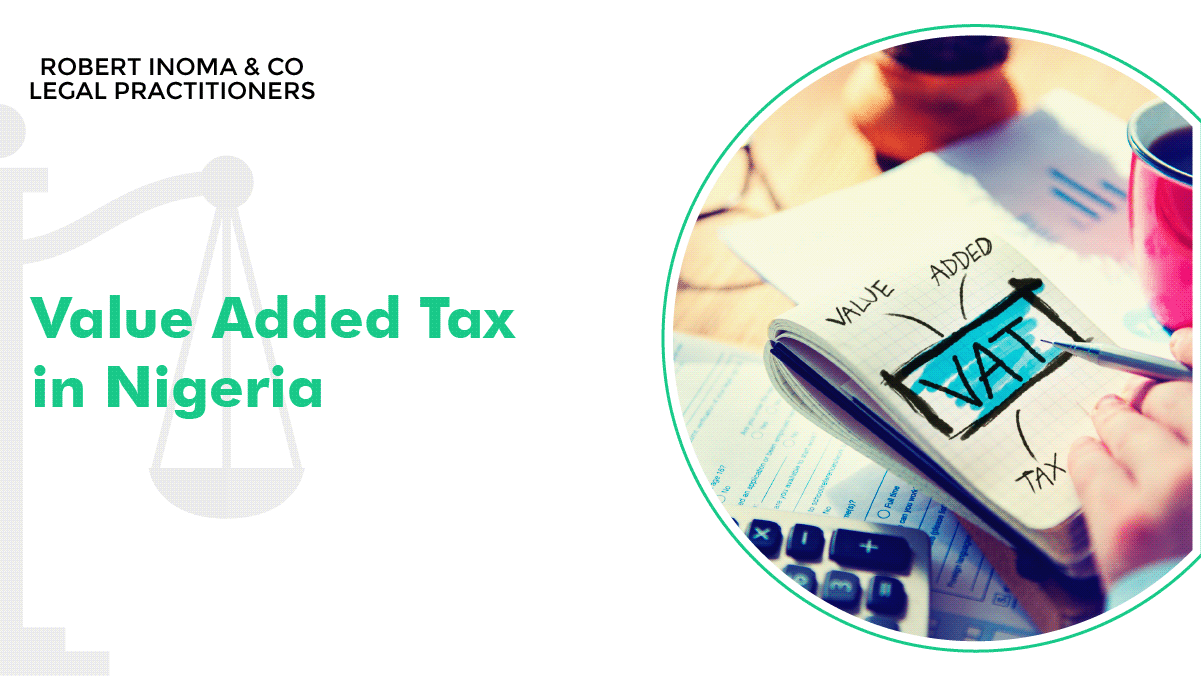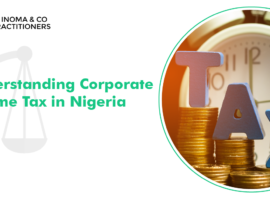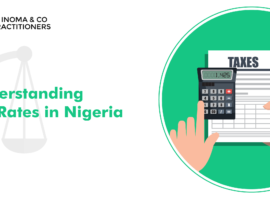Value Added Tax in Nigeria
Value Added Tax (VAT) is a tax on the supply and distribution of goods and services. VAT is collected during the production and distribution chain. It is however known as a consumption tax because it is eventually borne by the final consumer. VAT is on economic operations in Nigeria including imported goods and services.
In Nigeria, the standard rate of VAT is 7.5%. It was initially 5% but was increased by 2.5% on 1st February 2020. The Value Added Tax System is administered and controlled by the Federal Inland Revenue Service (FIRS). By law, all manufacturers, importers, distributors, and suppliers of goods and services in Nigeria are mandated to register for VAT.
According to Section 8 sub 1 of the VAT Act in Nigeria, all businesses are required to register for VAT within the first six (6) months of operation. “A taxable person shall, within six months of the commencement of the Act or within six months of the commencement of business, whichever is earlier, register with the board for the purpose of the tax.” This requirement also applies to international businesses setting up a company in Nigeria. Whether the business wishes to operate with the state, federal, or local government, they are not excluded from VAT registration. Value Added Tax is usually paid every month to the FIRS tax office. The VAT-registered person is expected to make regular VAT return to the FIRS.
According to VAT Act under section 10 sub 1, a non-resident company is also required to register for VAT using the Nigerian address of the person or business he/she is doing business with. The correspondence related to VAT for the business will be sent to the registered Nigerian address. The non-resident company is also mandated to include VAT in all invoices to the person or business it’s doing business with in Nigeria.
Contents
How to Calculate Value Added Tax (VAT)
Under section 4 of the VAT Act, VAT is calculated at the flat rate of 7.5% on all goods and services sold in Nigeria. There is however a VAT exempt list or zero-rated where VAT is not calculated on these goods or services. For example, all exported goods are zero-rated, which means that these goods are VAT rated, but at zero percent. It means that the Value Added Tax (VAT) is collected from the foreign buyer and any input tax will be refunded.
Every month, businesses are mandated to calculate the amount of VAT collected from customers and offset it with the VAT paid with the suppliers and distributors of the goods or services. In the case where the amount of VAT paid is higher than the VAT the business collected, the business will be owed a refund. But if the amount paid is lesser than the amount collected, the business will be asked to pay the difference. It is important to note that only goods bought or imported directly (for sale), and goods used in the direct production of goods whereby an output tax is charged, can calculate an offsetting tax. The VAT on general expenses, services, and overhead are expected to be deducted before a taxable profit is calculated, and thereby do not qualify for the offsetting VAT.
Under section 15 sub 1 of the VAT, Act, businesses are to remit the Value Added Tax on the 30th day of the month for the goods and services sold in the previous month. For instance, if a product is sold on May 17th, 2020, the VAT on the sale must be submitted by June 30th, 2020 to avoid non-remittance penalties. “A taxable person shall render to the Board, on or before the 30th day of the month following that in which the purchase or supply was made, a return of all taxable goods and services purchased or supplied by him during the preceding month in such manner as the Board may, from time to time, determine.” – Section 15 sub 1 VAT Act.
A penalty fee of N5,000 will be charged for every month the required VAT amount is past due. Although VAT is a consumer tax, the business has to be deliberate and monitor its VAT remittance to avoid issues with the FIRS.
Goods and Services Exempted from VAT in Nigeria
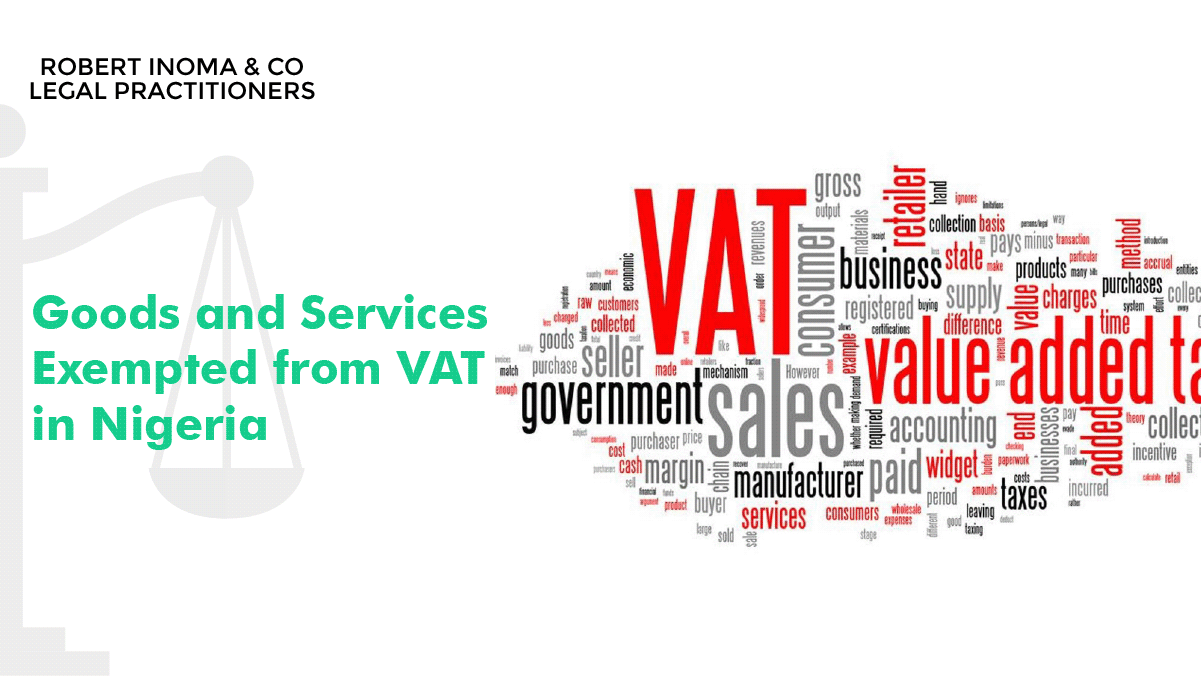
In Nigeria, certain goods and services are exempted from remitting the Value Added Tax (VAT). According to the VAT Act, the following goods and services are exempted.
Goods Exempted
- Medical and pharmaceutical products;
- Basic food items;
- Books and educational materials;
- Newspapers and magazines;
- Baby products;
- Commercial vehicles and their spare parts, and
- Agricultural equipment and products and veterinary medicine;
Services Exempted
- Medical Services;
- Services rendered by Community Banks, Peoples Banks and Mortgage Institutions; and
- Plays and performances conducted by educational institutions as part of learning.
Besides these goods and services exempted from paying the Value added tax, all exported goods are taxable at zero percent. In other words, no VAT will be required from a foreign buyer, and input taxes are refundable.
Procedure for VAT Registration in Nigeria
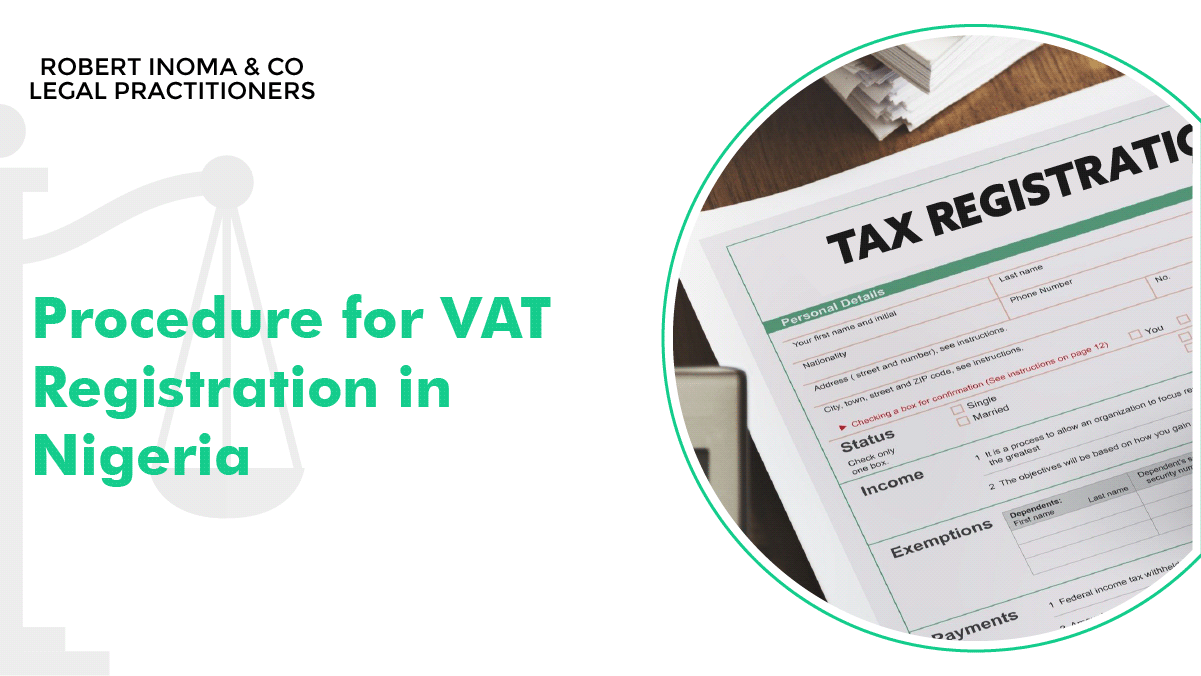
The application for VAT registration is not complicated. You are required to visit any Federal Inland Revenue Service (FIRS) Office with the following documents.
- Memorandum & Articles of Association
- Utility bill Certificate of Incorporation: CAC2, CAC7
- Duly filled and officially stamped VAT form 001
- Application letter on company letter headed paper\
You need two (2) copies of each of these documents along with the originals. The originals will be sighted and returned while the copies will be signed and stamped by the FIRS. A copy of the documents will be kept, while the other will be issued to you (the applicant) as evidence of application. VAT registration is free and can be completed immediately or by the next day. However, when there are unforeseen issues at the FIRS office, it could take up to a week or two before it is completed.
Input VAT and Output VAT
When the output VAT is more than the input VAT, liability occurs. The output VAT is the tax due on all its taxable supplies. It is usually derived by multiplying the aggregate supply value by the VAT rate (7.5%). Input VAT on the other hand is charged on the goods and services supplied and other expenses. The net VAT is the tax amount that is expected to be paid to the FIRS.
To claim a credit for input VAT, the registered person must have a tax invoice, along with kept records and accounts to ease the VAT administration process. You must obtain and complete the VAT registration at the FIRS office, where a permanent VAT registration number will be issued.
Tax Invoice and VAT
A tax invoice is an invoice that shows the amount of payable tax. It is similar to regular invoices, except that it carried the VAT registration number and the VAT payment at the stipulated rate.
It includes the description, quantity, and value of goods and services that the tax is charged at. All taxable businesses are obligated to issue a tax invoice for every VAT transaction. When Value Added Taxable goods or services are supplied to another person or business, a tax invoice must be issued for the transaction. All tax invoices are expected to carry the following:
- Name, address, and VAT registration number;
- Taxpayers Identification Number
- Customer¡¦s name and address;
- Type of supply;
- A description of the goods and services supplied;
- Quantity of goods or extent of services;
- The rate of VAT;
- The rate of any cash discount offered; and
- The total VAT payable.
Goods That Qualify for VAT
VAT is chargeable on all locally supplied goods in Nigeria except goods and services that are exempted in the VAT Act. All Imported goods into Nigeria also qualify for VAT except those specifically exempted in the Act. Even if the importer is registered for VAT or pays custom duties of the goods, Value Added Tax will be charged. The VAT charged will be in addition to customs duties and other relevant importation charges.
Imported Services also qualify for VAT. All services received from outside the country are charged the Value Added Tax if the services are supplied to a Nigerian.
Conclusion
VAT is a consumption tax borne by the final consumer. It is included in the consumer’s payment for a taxable good or service. Value Added Tax is charged at a flat rate of 7.5%. The Federal Inland Revenue Services (FIRS) administers this tax. Every business or organization in Nigeria is mandated to register for VAT by visiting the FIRS office with the required documents. VAT remittance is usually made monthly to the FIRS. It is paid on or before the 30th day of the month for the goods supplied in the previous month. Except for goods that are specifically exempted, the Value Added Tax is chargeable on all imported goods, local goods, and imported services in Nigeria. A penalty fee of N5,000 per month is charged for failure in VAT remittance at the stipulated time.
Professional law firms like Robert Inoma & Co can help you in sorting your VAT along with other taxations for your company. Robert Inoma & Co is a leading law firm in Nigeria with professional and accredited lawyers in taxation, corporate law, patents, and trademark services. Visit www.robertinomalaw.com today to get started.


